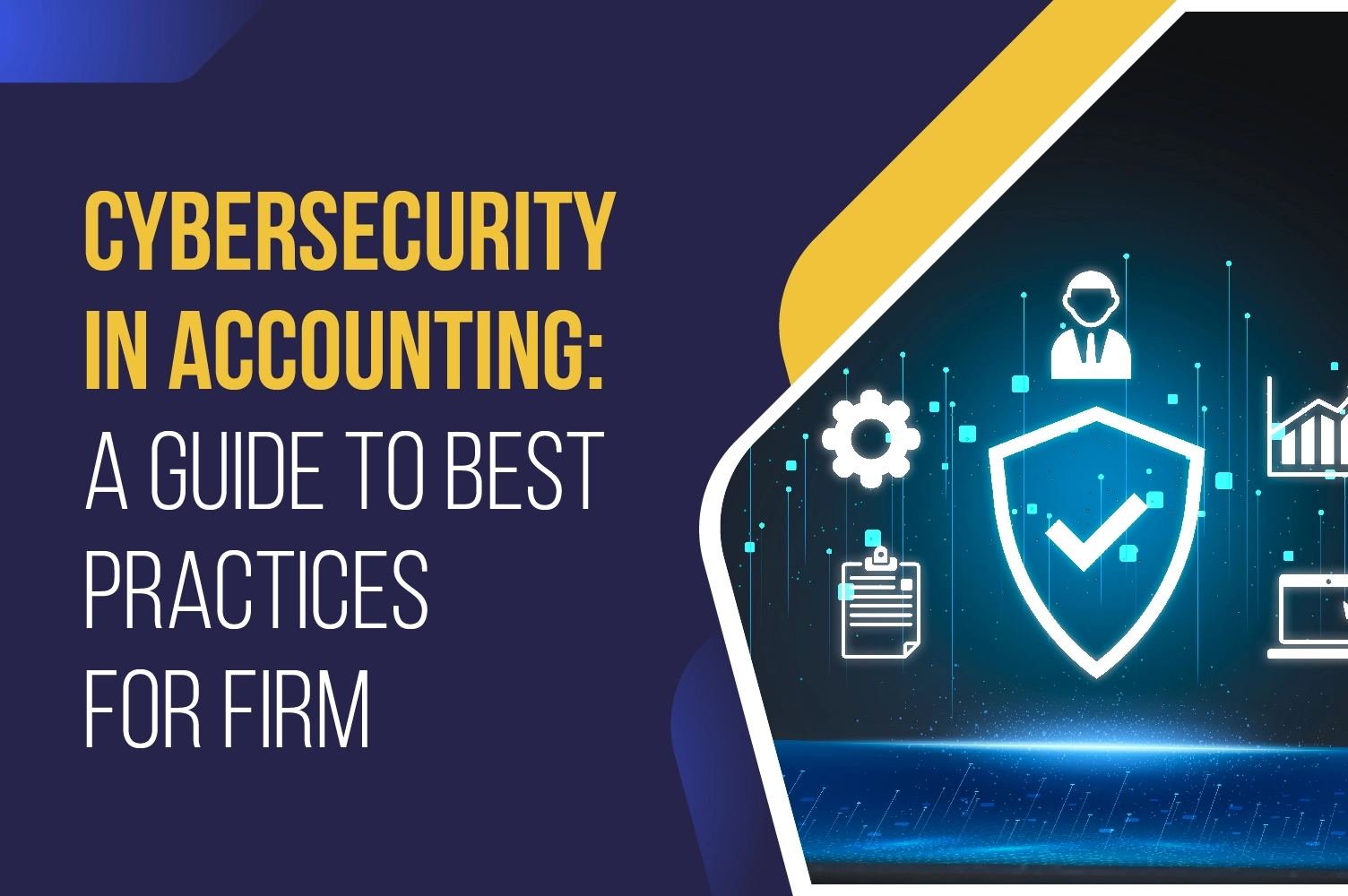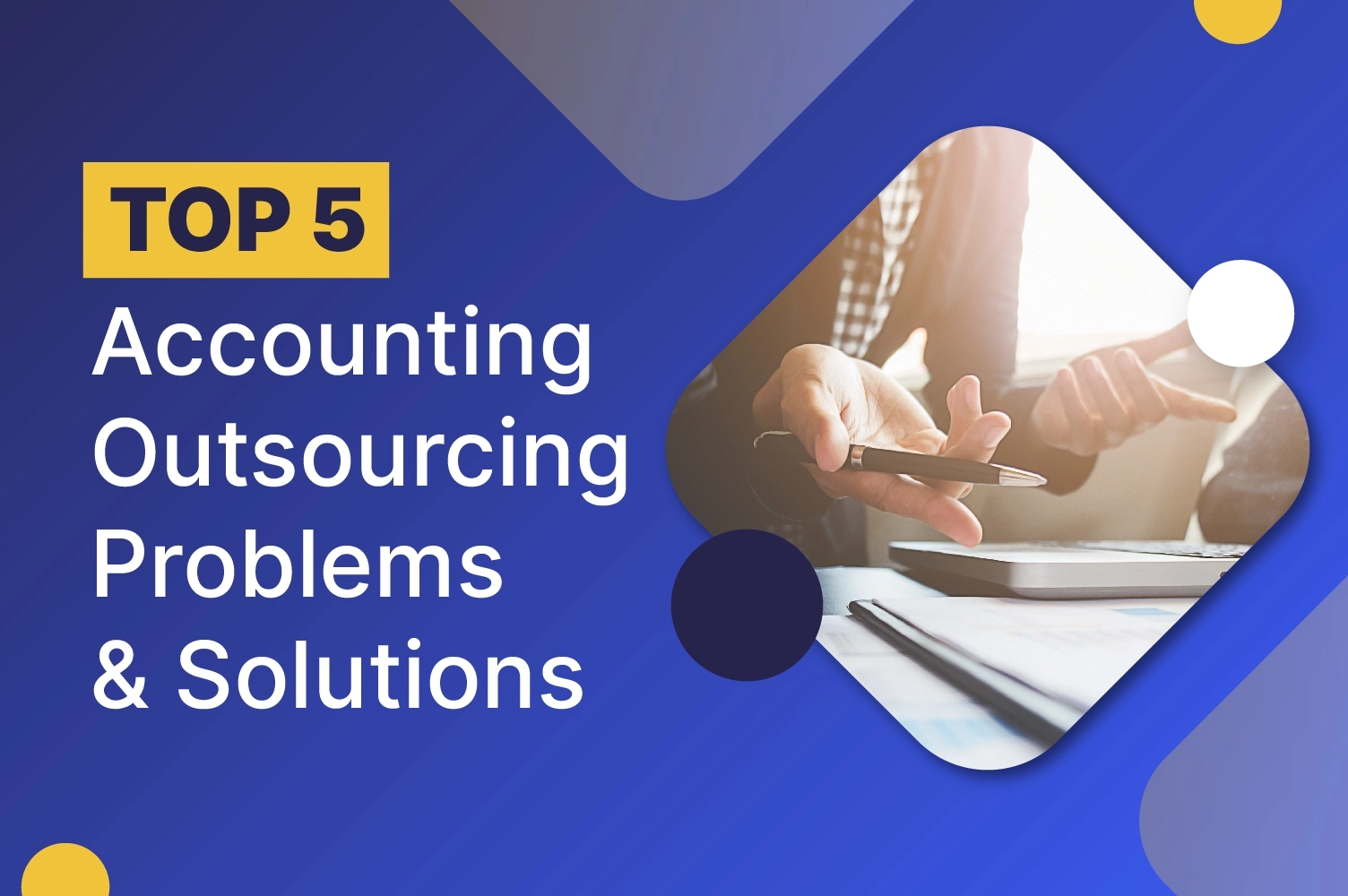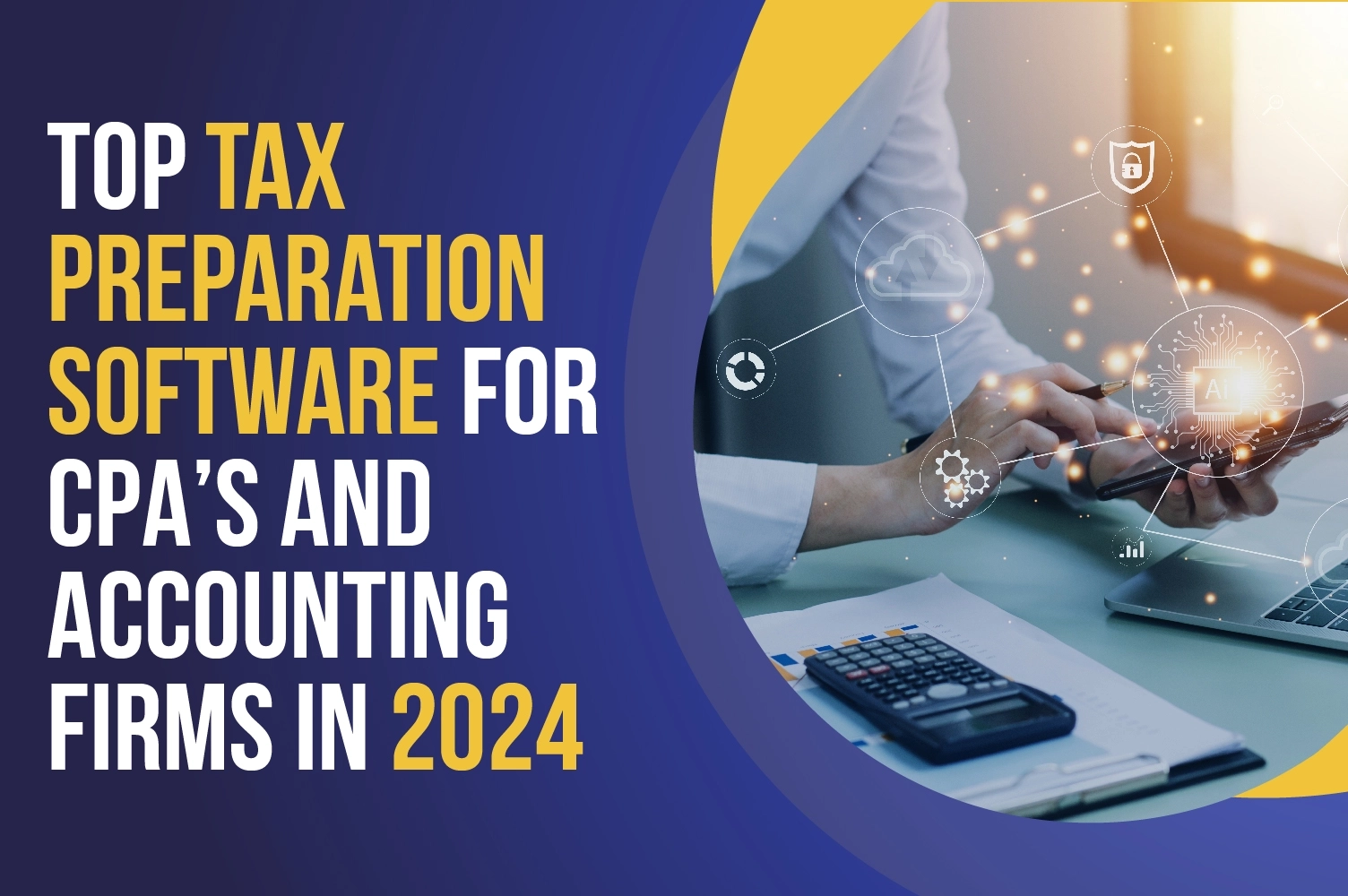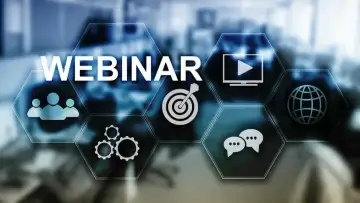- Home
- Blogs and Insights
- Cybersecurity in Accounting: A Guide to Best Practices for Firms
Cybersecurity in Accounting: A Guide to Best Practices for Firms
 Tushar Pansare
Tushar Pansare- Oct 17, 2024
- 10 mins read
- 232 views

In the present digital age, cyber crimes are growing at a high speed, and their most popular targets are accounting firms. These firms hold sensitive financial data, which makes them greatly vulnerable to cyberattacks. It become a basic need for accounting firms to execute strong online protection measures as it is now more than a discretionary. In this blog, we highlight key practices tailored explicitly for cybersecurity in accounting to avoid cybersecurity threats.
Understanding the Cybersecurity Landscape
Accounting and Cyber Security are a must. The accounting profession faces challenges in cybersecurity mainly because of their work nature. They deal with a lot of personal and sensitive financial data, follow rules specific to their firm, and increasingly use cloud-based accounting software. The shift towards remote workplaces has additionally muddled the security scene.
Some of the most common cyber threats targeting accounting firms include Phishing attacks, ransomware, data breaches, insider threats, and social engineering. These threats are constantly changing, getting more sophisticated, and challenging to spot. As a result, accounting professionals must remain proactive and vigilant, implementing strong security measures like robust passwords and strategic cybersecurity planning to protect sensitive financial data from malicious actors.
Threats to Accounting Firms
In the digital age, accounting firms face a multitude of cyber threats that can compromise sensitive financial data and lead to severe consequences. Cyber attacks and data breaches are among the most significant concerns, as they can result in financial loss, reputational damage, and legal liabilities. Accounting firms must be aware of these threats and take proactive steps to protect their sensitive financial data.
Phishing and Social Engineering Attacks
Phishing and social engineering attacks are common threats to accounting firms. These attacks involve psychological manipulation to trick employees into revealing sensitive information or clicking on malicious links. Often disguised as legitimate communications, these attacks can be challenging to detect. To combat these threats, accounting firms should invest in employee education and training, teaching staff to recognize and report suspicious activities. Implementing robust security measures, such as multi-factor authentication, can also provide an additional layer of protection against these deceptive tactics.
Ransomware and Malware Attacks
Ransomware and malware attacks pose significant risks to accounting firms. Attackers use malicious software to encrypt or disrupt the firm’s data, demanding a ransom for its release. These attacks can be devastating, causing substantial financial loss and damaging the firm’s reputation. To protect against ransomware and malware, accounting firms should ensure that their software and systems are regularly updated to patch vulnerabilities. Additionally, having robust backup and disaster recovery procedures in place can help mitigate the impact of such attacks, ensuring that data can be restored quickly and efficiently.
Establishing a Strong Cybersecurity Foundation
Creating a complete and strong online protection strategy is the most essential phase in safeguarding your firm. The roles and responsibilities of the firm, their policies and measures of data handling, and plans for responding to incidents should all be clearly outlined in the policy. It is essential to conduct risk assessments regularly to find vulnerabilities in your systems, assess the potential impact of various cyberattacks, and prioritize areas for improvement. Additionally, emphasizing financial data security is crucial, as safeguarding sensitive financial information can prevent severe consequences, including loss of trust and significant financial damage.
The most essential part of any cybersecurity strategy in accounting is employee education and awareness. It is crucial to train employees on a regular basis to recognize phishing attempts and other forms of social engineering. The best is to develop a cybersecurity awareness culture in which each employee is aware of their responsibilities for data security.
Implementing Technical Safeguards
Strong access controls are fundamental for safeguarding delicate information and sensitive data. Use strong, one-of-a-kind passwords, employ multi-factor authentication (MFA), and think about using password managers. When it comes to user access, the rule of least privilege should be followed to make sure that employees only have access to the data and systems they need for their roles.
Another crucial aspect is network security. To safeguard your network, make use of intrusion detection and prevention systems and firewalls. Separate your networks to isolate sensitive data, and make sure that all software and systems are patched on a regular basis to fix known vulnerabilities.
Protecting financial data is essential for regulatory compliance and involves educating employees about the risks of data breaches. Adhering to industry standards is crucial for safeguarding sensitive information within accounting systems. Data protection relies heavily on encryption. Carry out start-to-finish encryption for details on the way and very still. Make sure that employees use VPNs to protect their connections when they need to access firm resources from a distance.
Endpoint security is becoming increasingly important, primarily because more people work from home. All devices should have the most recent antivirus and anti-malware software installed and maintained. Implement mobile device management (MDM) on firm-owned devices to ensure that security policies are followed even when used outside the office.
Data Protection and Privacy
The fundamental step in data protection is data classification. Classify your information in light of awareness and significance, and carry out proper security measures for every classification. Clear protocols for data sharing and transmission should be established to keep sensitive data from being accidentally exposed.
Educating staff on the risks and consequences of a financial data breach is crucial. Such breaches can compromise sensitive information and client trust, ultimately jeopardizing the firm's reputation and operations. Regular training sessions should be conducted to ensure that all employees are aware of the potential threats and the importance of safeguarding financial data.
Regular data backups are essential for recovery in the event of a cyberattack or system failure. Make sure your backups can be successfully restored on a regular basis by testing them and storing them safely, preferably off-site or in a separate cloud environment.
Compliance with privacy laws is another important consideration. Regularly audit and document your efforts to comply with relevant privacy regulations, such as GDPR and CCPA, and implement the necessary measures to ensure compliance.
Cloud Security and Email Protection
As bookkeeping firms progressively depend on cloud administrations, cloud security becomes fundamental. Make sure you are familiar with the shared responsibility model for cloud security and select reputable cloud service providers with robust security measures. Implement strong access controls for cloud resources and regularly review and configure your cloud security settings.
Email remains a primary vector for cyber attacks. Use email authentication protocols like SPF, DKIM, and DMARC, as well as strong spam and malware filtering solutions. Train representatives to distinguish and report phishing endeavors and lead normal phishing recreations to test their mindfulness.
Mobile Device Security and Third-Party Risk Management
Mobile security is essential with the increasing use of mobile devices in the workplace. Mobile device management solutions should be used for firm-owned devices, and bring-your-own-device (BYOD) policies should be clearly defined for personal devices that access firm data. Allow devices that have been lost or stolen to be wiped remotely.
Consider risks posed by third parties. Assess the security practices of all sellers, guarantee they consent to your association's security guidelines, and remember security and protection statements for merchant contracts. Review the performance of key vendors regularly and conduct security assessments of them.
Incident Response and Compliance
Security incidents can still occur despite best efforts. Incident response and compliance develop a thorough episode reaction plan that characterizes jobs and obligations during a security occurrence, lays out correspondence conventions, and makes bit-by-bit methodology for various sorts of occurrences. Test and update this plan frequently to ensure its continued effectiveness.
It is essential to adhere to general data protection laws as well as industry-specific regulations. Learn about and adhere to accounting-specific regulations, like the AICPA's cybersecurity risk management reporting framework. To demonstrate compliance, if necessary, keep detailed records of your security measures and incident responses.
Penetration Testing
Penetration testing is a critical component of accounting cybersecurity. This process involves conducting a simulated cyber attack on the firm’s systems to identify vulnerabilities and weaknesses. By performing regular penetration tests, accounting firms can uncover potential security gaps and implement targeted measures to address them. This proactive approach helps ensure that the firm’s security measures are effective and up-to-date, providing a robust defense against cyber threats. Regular penetration testing not only enhances the firm’s security posture but also demonstrates a commitment to protecting sensitive financial data.
Building a Security-First Culture
Cybersecurity is not just an IT issue – it's a business issue requiring top-level management commitment. Ensure leadership supports and prioritizes cybersecurity initiatives and allocates adequate resources for security measures.
Promote a security-first culture through continuous education. Provide ongoing cybersecurity training and updates to all employees and encourage them to stay informed about emerging threats. Consider incentivizing security-conscious behavior by recognizing and rewarding employees who demonstrate sound security practices.
Is Offshore Accounting Safe and Secure?
A common concern arises as accounting firms increasingly utilize offshore solutions to optimize their operations: Is offshore accounting safe and secure? The response is nuanced and generally relies upon the actions executed by both the accounting firm and its offshore partner.
When done right, offshore accounting can be just as secure as onshore operations, although perhaps not all the more so. Numerous offshore service providers focus on accounting services and invest significantly in cutting-edge security measures. They frequently have teams solely responsible for upgrading and maintaining security protocols.
However, it's crucial to choose your offshore partner wisely. Look for providers that:
- Utilize robust data encryption techniques
- Make use of private, dedicated servers
- Establish strict access controls
- Regularly conduct security audits
- Comply with international data protection regulations
- Provide comprehensive security practices training to employees.
Keep in mind that the security of your offshore operations is only as strong as the weakest link. Maintaining stringent security measures on your end and thoroughly screening any potential offshore partners are essential.
Safe and Secure Offshore Accounting with Entigrity
Entigrity stands out as a leader in the field when it comes to safe and secure offshore accounting. Entigrity values security and confidentiality as a specialized offshore staffing partner for CPAs, accounting firms, and tax firms.
Security measures taken by Entigrity include:
- Robust Infrastructure: Entigrity uses cutting-edge infrastructure and technology to ensure data safety. This includes secure data centers, encrypted communications, and regular security updates.
- Stringent Data Protection: The confidentiality of all client data is maintained to the utmost. Entigrity utilizes advanced data protection measures, including end-to-end encryption and secure file transfer protocols.
- Compliance Focus: GDPR is one of the significant international regulations Entigrity complies with. In addition, they follow industry-specific standards, ensuring that your offshore operations comply with all applicable regulations.
- Rigorous Hiring and Training: The employees of Entigrity undergo thorough background checks and comprehensive security protocols and receive best practices training.
- Regular Audits: Entigrity conducts regular internal and external audits of its security measures to maintain the highest security standards.
- Dedicated Security Team: Entigrity has a particular team zeroed in exclusively on keeping up with and improving their safety efforts, guaranteeing they stay in front of potential threats.
Accounting firms can take advantage of offshore staffing without sacrificing security by collaborating with Entigrity. It is regarded as a reliable partner in the accounting sector due to its dedication to safeguarding client data and upholding the strictest confidentiality standards.
Final Thoughts
Accounting firms must continue to be proactive and vigilant in their cybersecurity efforts during increasing cyber threats. Firms can significantly reduce their vulnerability to cyberattacks and safeguard the private financial data of their customers by implementing these best practices.
Remember that cybersecurity is an ongoing process rather than a one-time endeavor. Constant attention, updates, and enhancements are needed to avoid potential threats. By integrating cybersecurity into your operations, you can build client trust and protect your firm's reputation in an increasingly digital world.
The cost of a possible data breach is significantly greater than the investment in prevention. Accounting firms must implement the highest cybersecurity standards as guardians of financial data. By following these prescribed procedures, your firm can demonstrate its commitment to protecting client information and position itself as a trusted partner in the digital age.
About Entigrity
Entigrity™ is a reliable offshore staffing partner for 850+ accounting and CPA firms, 200+ CFOs & businesses across the US, Canada, and the UK, positioning itself among the top outsourced accounting firms. With a flexible and transparent model, the company enables firms of all sizes to acquire skilled accounting, bookkeeping, and tax preparation staff. As a pioneer in offshore accounting, Entigrity ensures precise alignment with the hiring needs of accounting firms, providing staff under your control and management and minimizing concerns about compliance, payroll taxes, overheads, or benefits.
Trusted by 40+ of the top 200 US accounting firms, we specialize in supplying highly skilled personnel from India. We have 39 global offices across India. We are GDPR compliant, ISO 27001:2013, and SOC 2 Type II certified. We are now "Great Place to Work Certified™," "KPO Organization of the Year," and "Dream Companies to Work For" among accounting industries. Entigrity is also recognized as a platinum partner by the Institute of Management Accountants (IMA). The company is strategically partnered with Boomer, a BDO Alliance USA and Abacus Alliance member.
Tushar Pansare
Offshoring Strategic AdvisorTushar is an Offshoring Strategic Advisor for Accounting Firms with 21 years of experience in Business Development, Customer Success, and Client servicing. He has a proven track record of managing key accounts. Tushar is an experienced professional with about 8 years of experience in the North American market with Healthcare IT and Accounting and offshoring industries. He has a team-handling ability and is proficient in leading project development and ensuring compliance with quality standards. He is a team player and a a leader with exemplary analytical and problem-solving skills.



 +1-646-827-4348
+1-646-827-4348 +1-646-827-4348
+1-646-827-4348 +44-(0)20-3355-7340
+44-(0)20-3355-7340
























-1698666312.webp)


